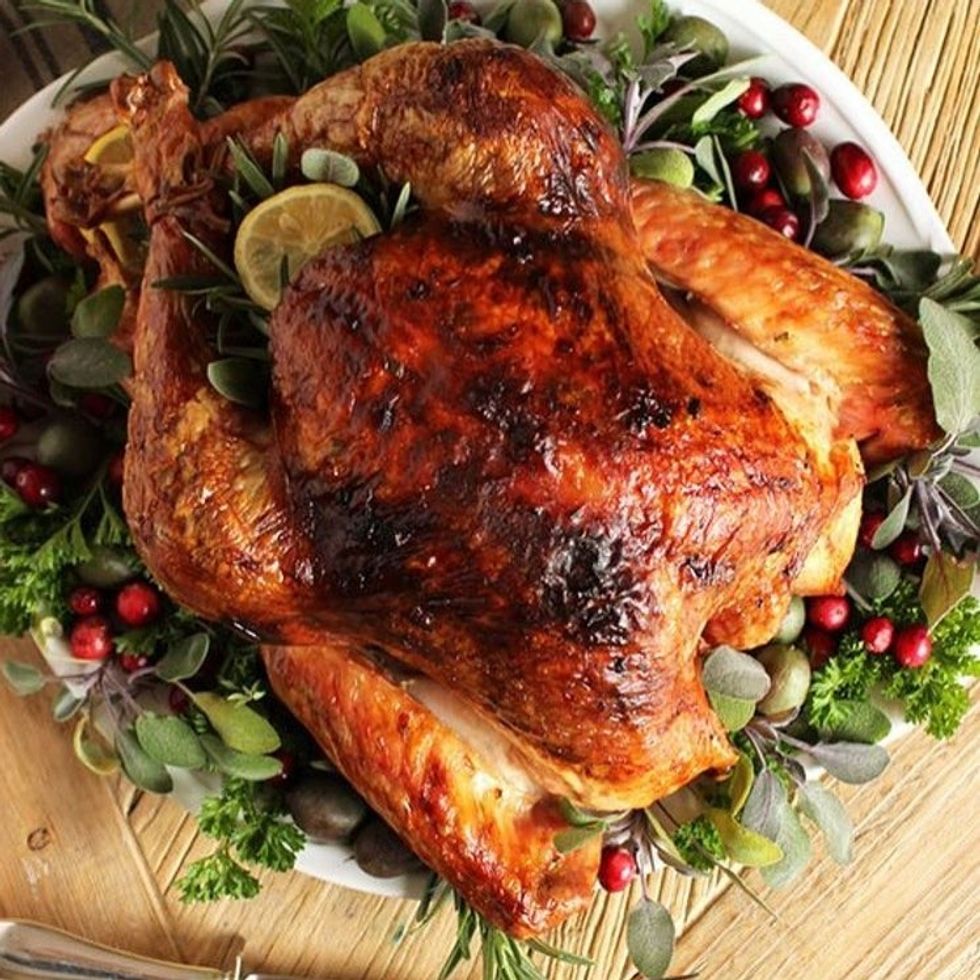Thanksgiving. Turkey Day. Best day of the year. It has many names. The fourth Thursday of the month of November is a celebration of two communities (the Mayflower Pilgrims and Wampanoag tribe) coming together to commemorate the peace made between the Englishmen and the natives to give thanks. The Wampanoag tribe's leader, Squanto, found the remaining Pilgrims of the Plymouth colony following a brutal winter of which an overwhelming majority of the settlers died from cold and malnutrition. The two communities helped one another; the natives taught the settlers how to farm maize and hunt, and the Plymouth settlers helped the natives with protection from other tribes by use of ammunition (the Wampanoag tribe had thoroughly suffered from a plague that had likely been introduced by Spanish settlers and migrated northward).
The celebration of thanks that occurred lasted three days at the end of September, though it is now celebrated on the fourth Thursday of the Month of November. More than likely, given where Plymouth is located, turkey and cranberry sauce was never eaten in the celebration (in fact, it may have been lobster and fish because of the proximity to the coast) nor were relations between the two groups ever more than circumstantial mutual reliance. That being said, there are still several valid reasons to celebrate on the day of Thanksgiving.
Thanksgiving celebrations date further back than that of Native Americans and Pilgrims; days of feasting during the fall equinox were observed as a religious holiday in many different religions, such as the ancient Greek, Romans, Phoenicians, and early Christians, including the colonists of the Puritan colony of Plymouth. Many Native American tribes themselves also celebrated the fall equinox by having a harvest feast after the first full harvest of the year. There is a good chance in fact, that the story of the great feast of Thanksgiving never even occurred, or that they occurred separately and are grouped together to paint the history between white colonists and natives to be a little more lighthearted and less bloodstained.
Once again, despite the (possibly insensitive?) history of Thanksgiving as depicted in modern media, many different cultures held the tradition prior to the Mayflower ever setting sail across the Atlantic. The fact that Americans today continue to celebrate it is mostly out of tradition rather than an ignorance of the history, though unfortunately the flowery version of historical events is often still taught to school age children who touch the line of cultural appropriation by dressing in feathers and pilgrim hats to celebrate the holiday in grade schools across the country. If you are disinterested in partaking in Thanksgiving Day festivities based on the ignored historical content associated with the celebration, you can join other protesters at Plymouth Rock in Massachusetts for the National Day of Mourning that takes place every year on Thanksgiving. For more information about this event, click here.
P.S.- If you celebrate Thanksgiving as a day to show thanks to those around you, your family, and your loved ones, please do not feel obligated to stop expressing thanks based on the historical content associated with Thanksgiving. Use critical thinking and be aware that the topic may be insensitive to others. Thank you for understanding that this article is not meant to shame anyone for celebrating Turkey Day, nor is it meant to express hatred toward any groups in favor or against the celebration of Thanksgiving. Everyone's opinion of the day is valued and important. Think of your peers throughout not only the month of November, but be mindful of the various different holidays celebrate din the winter months of November, December, and January. Happy festivities, and stay safe!














